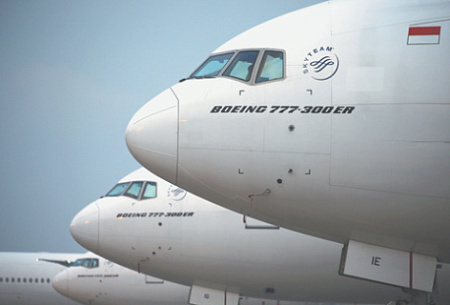
The Trump administration has slashed tariffs for Indonesia in a move that appears less like an act of goodwill and more like a calculated maneuver in the escalating competition for dominance in the Indo-Pacific. In exchange for a tariff reduction from 32% to 19%, Jakarta is expected to make substantial purchases of American goods, positioning this trade agreement squarely at the intersection of economics and high-stakes geopolitics as Washington vies with Beijing for influence.
The deal’s terms, announced by President Trump, are starkly transactional. Indonesia is slated to buy $15 billion in U.S. energy products, $4.5 billion in agricultural goods, and a fleet of 50 Boeing 777 passenger jets. This arrangement aims to address the significant $18 billion trade deficit the U.S. currently has with Indonesia. Despite the utilitarian nature of the proposal, Indonesian officials have welcomed the tariff cut, likely seeking to maintain stability ahead of the country’s upcoming 80th independence anniversary celebrations.
This economic outreach is a key component of Washington’s broader strategy to counter China’s expansionist ambitions in the region. The U.S. is positioning itself as a security partner for Southeast Asian nations, including Indonesia, which have their own maritime disputes with Beijing over resource rights in the South China Sea. Top U.S. officials have pledged to stand with partners against Chinese assertiveness, citing frequent incidents of risky maneuvers by Chinese military ships and aircraft near U.S. forces.
However, Indonesia, the world’s most populous Muslim nation and a regional heavyweight, is refusing to be a pawn in this superpower chess game. Jakarta is skillfully navigating the rivalry by adhering to its long-standing “independent and active” foreign policy, a principle established by its first president, a legacy that champions national sovereignty and avoiding entanglement in great power blocs. Indonesia understands that choosing a side would not serve its national interests.
In practice, this means balancing its relationships. While embracing the U.S. trade deal, Indonesia maintains robust economic ties with China, its top trading partner and a fellow member of the BRICS group. Under its current leadership, which seeks to build on a legacy of non-alignment, Indonesia is doubling down on its commitment to a multipolar world, determined to pursue its own path rather than siding with either Washington or Beijing.
